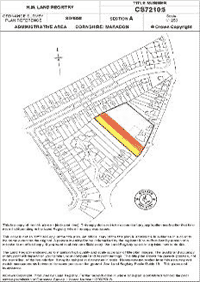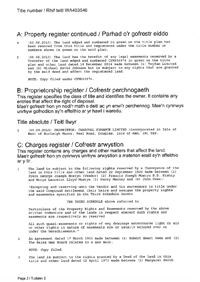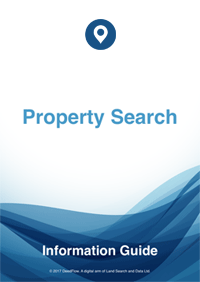Class of Title at the Land Registry
Contents
Overview
In the second part of the Title Register, i.e. Section B, the Proprietorship Register, there is a statement as to the Class of Title that you own. This is an important statement and should be looked at by every property owner. There are four classes of title.
The Title Classes
1. Title Absolute
An Absolute Title is the best Title, and the one that you should have. A person with an Absolute Title can sell or mortgage the property and not expect there to be any problems in doing so. The Class of Title depends upon the documentary evidence provided to the Land Registry when applying for First Registration. If the Land Registry are completely satisfied that you own the property, i.e. you have provided a good root of title when you applied for registration, then you will receive an Absolute Title.
Before First Registration conveyancing was carried out with paper Deeds, and one of the tasks for a conveyancer was to check that the purchaser was receiving a good root of title. The requirement to prove a good root was to examine the chain of ownership back to the owner who had the property at least fifteen years prior to the current vendor’s purchase. This would involve checking there were no broken links in the chain of ownership and that each owner was able to sell with legal capacity, i.e. was not bankrupt or that he did not lack mental capacity. This often entailed the examination of other documents than the deeds, as when a sale ensued following the grant of a power of attorney or when the property was inherited.
Upon registration, the Land Registry would examine the Deeds and documents submitted to them to ensure that the root of title was sufficient to grant an absolute Title.
2. Good Leasehold Title
Where the property is a leasehold property the new owner is only granted a Title Absolute when the freehold property is also registered with a Title Absolute. A Good Leasehold Title is often the best Title that can be given by the Land Registry, because the freehold Title owner has no need to register the freehold unless there is a trigger event, such as the sale and purchase of the freehold, or an application to register a mortgage.
3. Possessory Title
A Possessory Title is given where the applicant has claimed Title by adverse possession, or is unable to produce all of the Deeds on First Registration, or, as is often the case, is unable to produce any of the Deeds. The applicant’s solicitor, in such circumstances will prepare a Statement of Truth on behalf of the applicant, and provide as much evidence of ownership as possible, such as mortgage statements, bank statements, council tax receipts, etc.
4. Qualified Title
A Qualified Title is rarely given. It results in a registration where there is a specific defect in the Title that has been identified and is stated in the Title Register.
Upgrading a Title that is not Absolute
Possessory Titles can be upgraded after 12 years. Alternatively, where the Deeds to the property are found, an application to upgrade can be made straight away.
A Qualified Title can be upgraded as soon as the matter giving rise to the defect can be overcome, as where a missing Deed is discovered.
Good Leasehold Titles can be upgraded once the freehold Title is registered with an Absolute Title.
Application for an upgrade is made using Land Registry form UT1.
Title Register
The Land Registry Title Register holds data relating to the property ownership, purchase price, mortgage, tenure, covenants, rights of way, leases and class of title.
£19.95Title Plan
The Title Plan shows an outline of the property and its immediate neighbourhood, and uses colours to identify rights of way, general boundaries and land affected by covenants.
£19.95Associated Documents
Deeds creating Restrictions, Covenants, Easements, etc. are often kept digitally by the Land Registry and made available for sale due to their invaluable detail and content to assist in further understanding the Restrictions, etc.
£29.95


